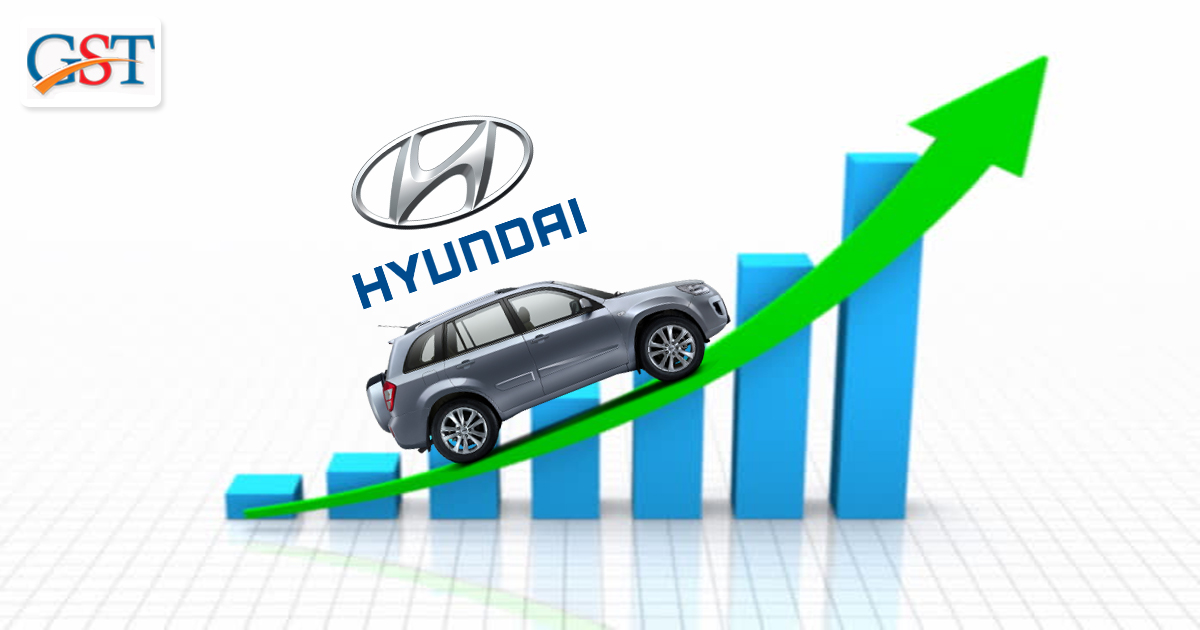Korean, Automobile Manufacturer Hyundai reported that the company is expecting the growth in Indian Automobile Industry due to the implementation of the new indirect tax regime. Under the previous taxation structure, tax was imposed 8 percent which is nearly double 15 per cent as compared to the new indirect tax regime.
Rakesh Srivastava, Director (Sales and Marketing) of Hyundai Motor India Limited said that, “Initially, the new Goods and Services Tax (GST) Regime is challenging for everyone rather than the demonetization. Particularly, small and medium-sized enterprises (SMEs) were facing issues with the new indirect tax regime and trying to stabilise their business enterprises. However, over a period of time, we will see growth coming in on account of the GST. The auto industry has the potential to grow by 15% over the next couple of years from about 8% at present.”
At Auto Expo in February 2016 in Greater Noida, Hyundai had presented a concept of under- development Compact SUV Carlino, which will run on Indian roads in the first half of 2019.
The Company Research and Development team in Hyderabad comprises nearly 700 engineers which are working on creating the product which will be launched in China. The research team of the company will play an important role in conducting market research activities and local work for upcoming future models in the pipeline.
Read Also: 5 Misconceptions About GST Which Everyone Needs to Understand
In India Hyundai- market share is at third number place which comes after China and the United States. Apart from these, in terms of profitability, India secured second number position to the Czech Republic base, whereas Brazil and United States secured the first position. Hyundai has recently launched three variants of cars- Elite 20, Grand i10 and Creta have been liked by the consumers in the domestic market and additively sold nearly 1.25 million units in the Indian market.
After the implementation of the Goods and Service Tax Regime in India, the government has raised taxes on hybrid vehicles. Due to the higher taxation rates in the new regime, Hyundai must have to reconsider hybrid vehicles plans to introduce such vehicles in the Indian market. “The new taxation structure has created challenges for hybrid vehicles. The increased prices of hybrid vehicles will lead to lower acceptance among customers of such high-end technology as the cost equation has altered,” said Srivastava.
Also Read: Meaning of SGST, IGST, CGST with Input Tax Credit Adjustment
Previously, the company had declared that they introduce hybrid cars in starting 2018. At the auto show in 2018, the company will present a 1,600 hybrid vehicle and later it will be launched two hybrid vehicles in the mid of the year of 2018.
The company has fixed nearly 6 per cent growth rate standards for 2018 and also said it wants to increase systematically in the Indian market but will not spend in more projects till 2020. To fulfil the domestic demands of consumers Hyundai will re- calibrate exports. Srivastava said, “We have total installed capacity of 700,000 units at our facility. Even with the new launches, we can re-calibrate exports and meet demand stemming from the planned launches.”
During the period of April- June, the domestic sales of Hyundai have increased by 0.66% and sold 124,327 vehicles, as well as the company, had exported 33,158 vehicles in the first quarter of FY18, which shows diminishing more than 16% as the comparison to the previous financial year. While on another hand, American Automaker Ford had exported 48,971 vehicles in the duration of April- June period, which shows a growth of 54%, the data based on the Society of Indian Automobile Manufacturers.
